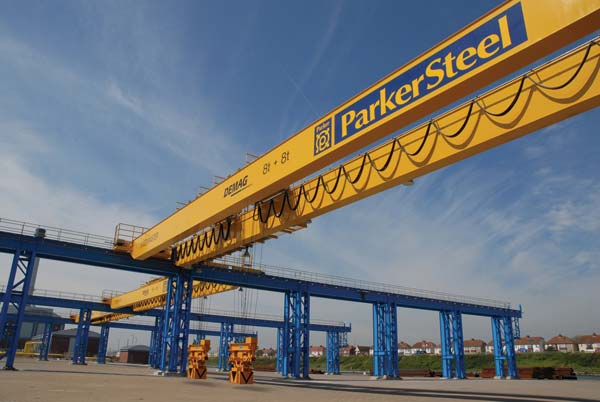The Knowledge Transfer Partnership (KTP) project between the University of Kent and Parker Steel Ltd has been awarded the highest grade of Outstanding by the KTP Grading Panel for it’s achievement in meeting KTP’s Objectives.
The KTP project has received an ‘Outstanding’ award by the KTP Grading Panel for its achievement in meeting KTP’s objectives. Dr Niaz Wassan, Reader in Management Science at Kent Business School tells us more:
 ‘The main objectives of the project were to create a thorough optimisation tool, which provided valuable insight into the true cost of operations and pinpoint specific cost generating activities. The data was used to create two powerful state-of-the-art heuristic optimisation algorithms. The first algorithm optimises the supply chain flow of goods to the end customer, where the second algorithm optimises the vehicle routing schedule. During the project, we successfully implemented both algorithms into the internal IT system of the company (Parker Steel Ltd) and we had the opportunity to collect feedback and measure impact from their daily use. Both algorithms are designed with a long-term sustainability perspective, where the routing software has a lifetime relevance for the company operations.’
‘The main objectives of the project were to create a thorough optimisation tool, which provided valuable insight into the true cost of operations and pinpoint specific cost generating activities. The data was used to create two powerful state-of-the-art heuristic optimisation algorithms. The first algorithm optimises the supply chain flow of goods to the end customer, where the second algorithm optimises the vehicle routing schedule. During the project, we successfully implemented both algorithms into the internal IT system of the company (Parker Steel Ltd) and we had the opportunity to collect feedback and measure impact from their daily use. Both algorithms are designed with a long-term sustainability perspective, where the routing software has a lifetime relevance for the company operations.’
‘Following the implementation, we have observed a 20% increase in the vehicle capacity utilisation and significant monthly savings from the fleet diversification we suggested.  Moreover, continued usage of the supply chain algorithm can lead to a 15% decrease in production cost and up to 30% decrease in transportation cost. Our suggestions for improvement have not only shown great savings potential but also have contributed to a 42% decrease in CO2 emissions, by operating with more efficient fleet mix and covering consumer demand with fewer lorries.’
Moreover, continued usage of the supply chain algorithm can lead to a 15% decrease in production cost and up to 30% decrease in transportation cost. Our suggestions for improvement have not only shown great savings potential but also have contributed to a 42% decrease in CO2 emissions, by operating with more efficient fleet mix and covering consumer demand with fewer lorries.’
The KTP project has successfully achieved the operational and the strategic objectives by providing insight into the nature of the business and made suggestions regarding the use of the satellite depots, the approach to material consolidation, internal transportation and the perception of operations costs. 
‘We also provided training sessions to staff on how to use the newly developed software and incorporated their feedback into the design of the algorithms, which had a positive effect on the transition and adoption of the new software.’
To find out more about Knowledge Transfer Partnerships please visit the website.

